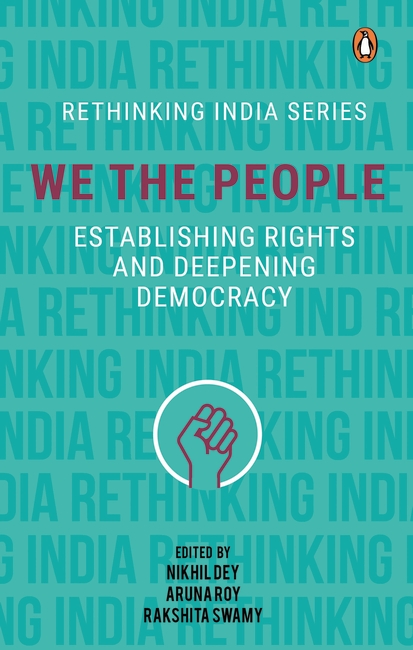
Who are the people of India? What are their rights? What are their claims on the Indian Constitution and on democracy? We the People, the fourth volume in the Rethinking India series, brings together a collection of essays that explores the process of germination and growth of undisputed universal rights, and of them being developed as tangible entitlements in India. The essays also examine the continuing challenge of establishing, realizing and protecting these entitlements.
The authors are academics, activists and practitioners who have a strong relationship with social movements. Their narratives trace the use of the rights-based framework of the Indian Constitution by sociopolitical movements in order to strengthen the economic, cultural and social rights of ordinary Indians. The multiple perspectives draw upon and contextualize the complex relationship of the citizen with the state, society and market in democratic India. Their sharp critiques have a counterpoint in stories of creative, successful alternatives designed by peoples’ collectives.
There is both an explicit and implicit challenge to conservative notions of ‘market-led development’ that see competition and profits as central to ‘progress’ and success. The essays showcase the continuing dialectic between established constitutional rights and shifting state policy. They provide invaluable insight at a time when many sacred pillars of neoliberal ‘globalization’ are crumbling, and the capitalist superstructure is itself turning to the state for survival. They promote understanding and scholarship, and enliven debates as we continue to search for answers in uncertain and challenging times.
Imprint: Vintage Books
Published: Aug/2020
ISBN: 9780670092970
Length : 176 Pages
MRP : ₹499.00
Over the last decade, conversations around constitutional rights and state directives have taken precedence. Facts and opinions ebb and flow into each other, and in some instances, it becomes difficult to separate their boundaries and compartmentalise. Public perception and our understanding of our own locations within structures of the state and state power have shifted […]
